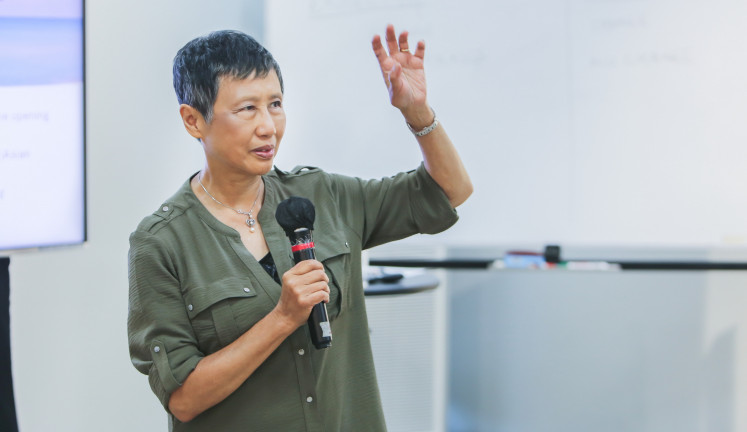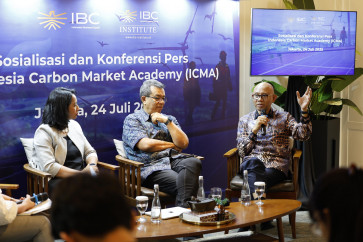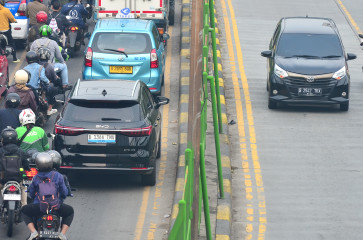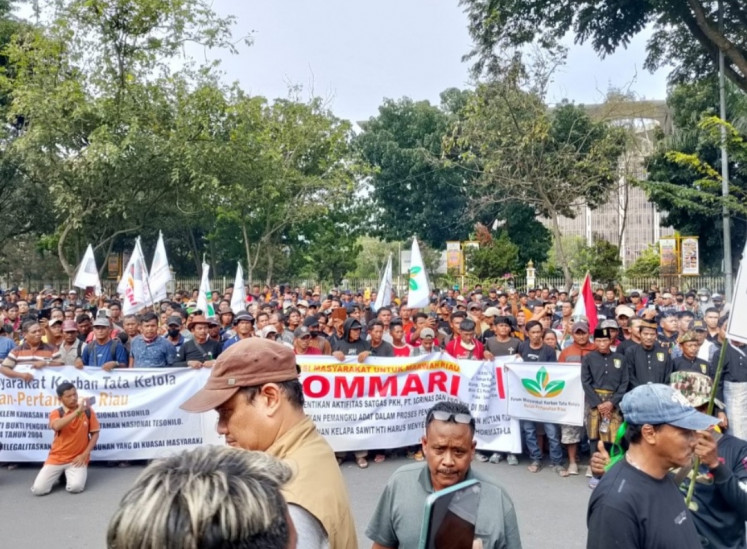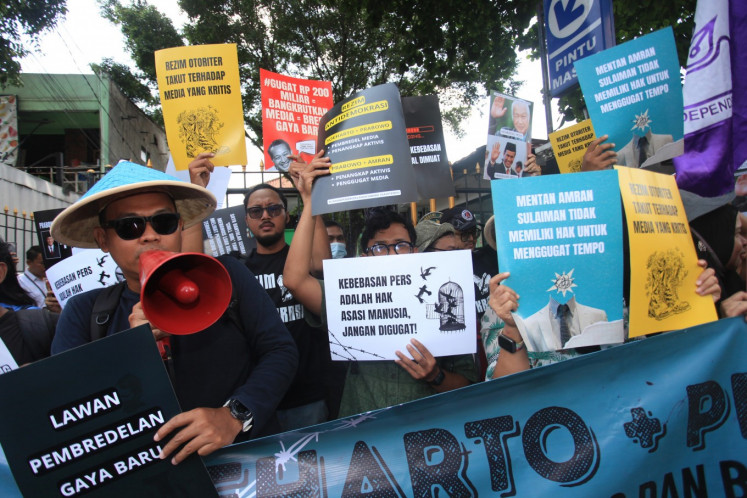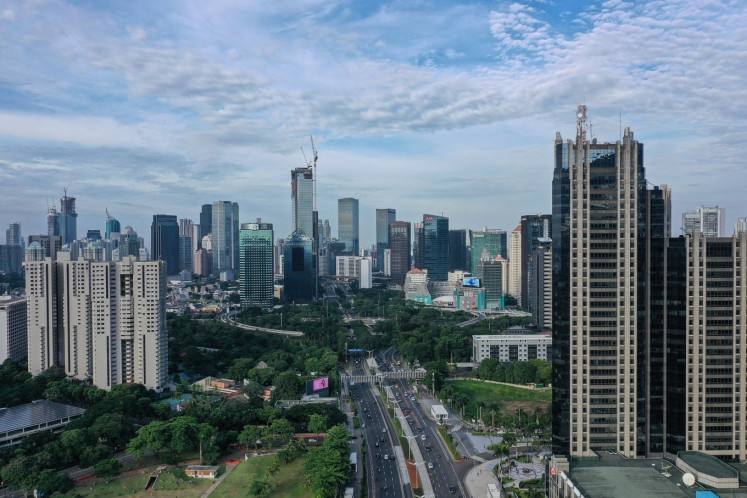Popular Reads
Top Results
Can't find what you're looking for?
View all search resultsPopular Reads
Top Results
Can't find what you're looking for?
View all search resultsPandji Pragiwaksono: Endless talks & laughter liberation
(Courtesy of Pandji Pragiwaksono)In the ever-growing local stand-up comedy scene, the name Pandji Pragiwaksono has become a distinctive one among both fellow comics and fans
Change text size
Gift Premium Articles
to Anyone
(Courtesy of Pandji Pragiwaksono)
In the ever-growing local stand-up comedy scene, the name Pandji Pragiwaksono has become a distinctive one among both fellow comics and fans.
Pandji Pragiwaksono has, so far, produced three stand-up albums ' Bhinneka Tunggal Tawa (Diversity United in Laughter) in 2011, Merdeka Dalam Bercanda (Freedom In Humor) in 2012 and Mesakke Bangsaku (Oh, My Poor Nation) in 2013 ' and he is about to become the first Indonesian comic to conduct a world tour, in 10 cities across seven countries on four continents.
'The Mesakke Bangsaku World Tour is from May through December. The show in Singapore has been completed and I will have a short break before restarting the tour again in August with performances in Melbourne, Adelaide and Brisbane in Australia. Then I'll visit London, Amsterdam and Berlin in October, Guangzhou in November and finally Los Angeles in December,' Pandji told The Jakarta Post during a recent interview.
Pandji said the tour had come about following a number of requests from Indonesians living overseas to see him perform live, having purchased the Mesakke Bangsaku DVD via digital download from his online shop, wsydnshop.com.
'After receiving those requests, I contacted Indonesian student representatives abroad and they agreed to arrange everything for the tour, and so it's happening [...] What I have accomplished so far will, I believe, encourage more stand-up comedians in Indonesia to know that they can make a living from their art,' he said.
Pandji first realized his potential in the world of stand-up comedy not by shows or performances but a life-changing event that made him an entertainer and entrepreneur. That event was the divorce of his parents 20 years ago.
Born on June 18, 1979, in Singapore, Pandji was in junior high school when his parents divorced. Afterward, he spent more time with his friends as encountered fewer restrictions from his parents.
'That was when I discovered that I loved to talk in front of people, and I could talk for a very, very long time,' he said.
He did not know what to do with his penchant for talking. All he could think of was to break into radio as an
announcer. He also became a basketball commentator and undertook a variety of jobs in the early 2000s.
His breakthrough in the entertainment industry came when he hosted a candid television show, Kena Deh! (Gotcha!), in 2006.
'The show only lasted for one season but another television station bought it and rebroadcast it several times in 2008. Ever since then, I became known as Pandji Kena Deh, a name that stuck with me until 2012,' he said.
His first encounter with stand-up comedy was watching Robin Williams: Live on Broadway show in 2002.
'Then I saw Chris Rock's special, Never Scared, and I was in awe at the way he delivered serious issues in a comedic manner. I told myself that I wanted to do that, but at the time it wasn't possible because I was still working as a radio announcer,' he said.
In 2009, the stand-up comedy scene in Indonesia started to emerge as an alternative to TV comedy shows and Pandji wasted no time getting on the wave. He began performing in cafés and invited his Twitter followers to come see him. During this period, he slowly established a fanbase and gradually shifted his persona and brand.
Two years later, the scene rapidly grew as more and more comics appeared and television stations began to broadcast stand-up shows and competitions. During this time, Pandji had already reestablished himself as one of the pioneers in the local stand-up comedy scene.
Although Pandji acknowledged the role of television in making stand-up comedy popular in mainstream culture, he also criticized the heavy censorship among TV producers of comics' material, saying that such censorship may slowly kill the art.
'Comedians performing on local TV stations often deliver shallow material because of each station's self-censorship, making it a struggle to reach a wider audience,' he said.
Televisions almost always prohibit comedians from talking about race, religion or sensitive social issues, such as rape, despite the fact that these kinds of subjects made comics like George Carlin, Jimmy Carr and Jim Jefferies international icons.
'Television stations have become more tolerant but they are moving very slowly [...] All I can say is as of now, comedians only use television as a platform to deliver samples of their material. Their real persona and edge are displayed in live performances and specials, which allow people like me to make money as stand-up comedians,' he said.
Pandji said he planned to keep on doing stand-up over the long term.
'Stand-up comedy is what puts food on the table for my family and I believe it will do so for a long time to come,' he said.
'The longer a stand-up comedian stays in the game, the funnier and better he or she will become. This is why I believe this is a good long-term career choice for me.'


